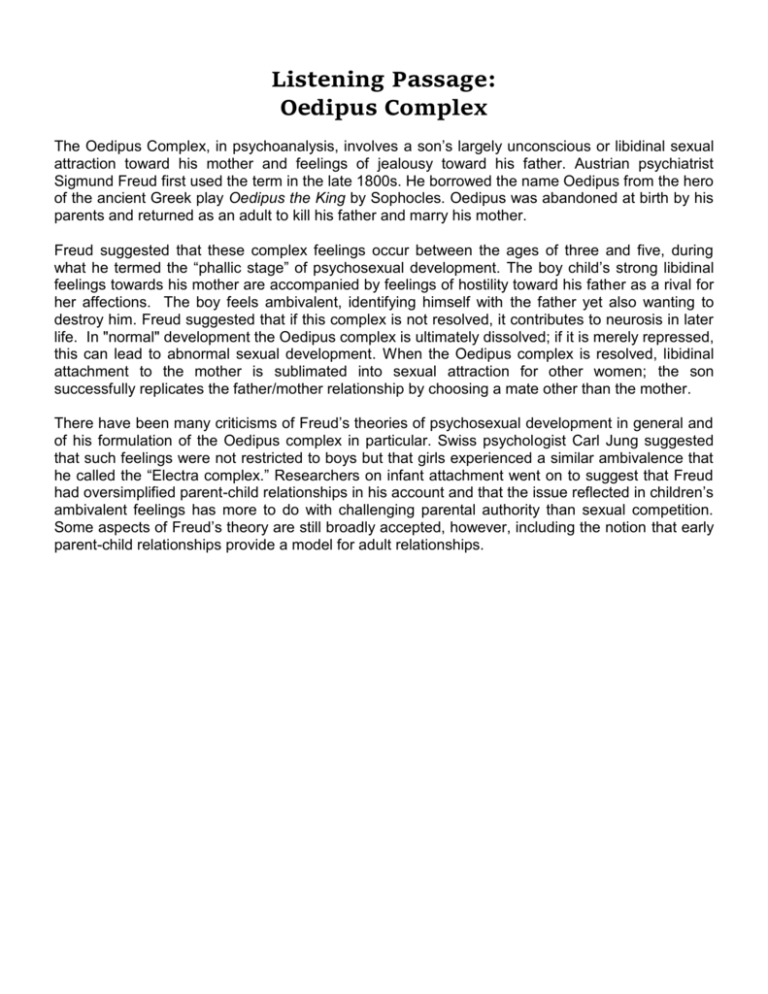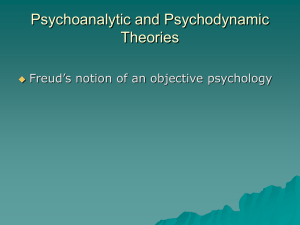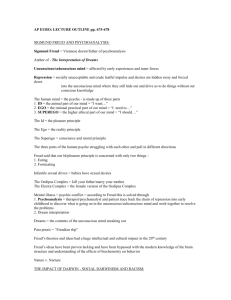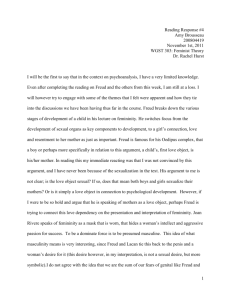
Listening Passage:
Oedipus Complex
The Oedipus Complex, in psychoanalysis, involves a son’s largely unconscious or libidinal sexual
attraction toward his mother and feelings of jealousy toward his father. Austrian psychiatrist
Sigmund Freud first used the term in the late 1800s. He borrowed the name Oedipus from the hero
of the ancient Greek play Oedipus the King by Sophocles. Oedipus was abandoned at birth by his
parents and returned as an adult to kill his father and marry his mother.
Freud suggested that these complex feelings occur between the ages of three and five, during
what he termed the “phallic stage” of psychosexual development. The boy child’s strong libidinal
feelings towards his mother are accompanied by feelings of hostility toward his father as a rival for
her affections. The boy feels ambivalent, identifying himself with the father yet also wanting to
destroy him. Freud suggested that if this complex is not resolved, it contributes to neurosis in later
life. In "normal" development the Oedipus complex is ultimately dissolved; if it is merely repressed,
this can lead to abnormal sexual development. When the Oedipus complex is resolved, libidinal
attachment to the mother is sublimated into sexual attraction for other women;
the son
successfully replicates the father/mother relationship by choosing a mate other than the mother.
There have been many criticisms of Freud’s theories of psychosexual development in general and
of his formulation of the Oedipus complex in particular. Swiss psychologist Carl Jung suggested
that such feelings were not restricted to boys but that girls experienced a similar ambivalence that
he called the “Electra complex.” Researchers on infant attachment went on to suggest that Freud
had oversimplified parent-child relationships in his account and that the issue reflected in children’s
ambivalent feelings has more to do with challenging parental authority than sexual competition.
Some aspects of Freud’s theory are still broadly accepted, however, including the notion that early
parent-child relationships provide a model for adult relationships.
Name_______________________
Listening Passage: Questions on Freud:
1. From which Greek author’s work did Freud borrow the name “Oedipus”?
a. Antigone
b. Euripedes
c. Aristotle
d. Sophocles
2. When did Freud create his theory of psychoanalysis?
a. the late 1500s
b. the late 1600s
c. the late 1700s
d. the late 1800s
3. In the Oedipus complex, the son
a. sees his mother as an obstacle
b. sees his mother as a desirable object
c. sees his father as a partner
d. sees his father as a desirable object
4. If unresolved and repressed, the Oedipus complex can lead to
a. neurosis
b. ambition
c. libido
d. psychoanalysis
5. According to the passage, some of the critics of Freud’s theory
a. challenged Freud’s work because it was not cross-cultural
b. challenged Freud’s exclusion of girls
c. preferred Freud’s analysis of the tripartite psyche
d. thought Freud’s model was perverted
6. Researchers on infant attachment attributed children’s ambivalent feelings to their need to
a. reproduce as soon as possible
b. compete sexually
c. challenge authority
d. sublimate their desire










